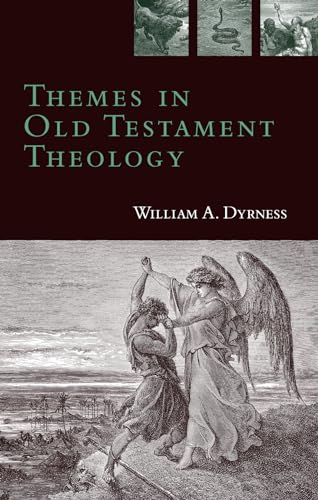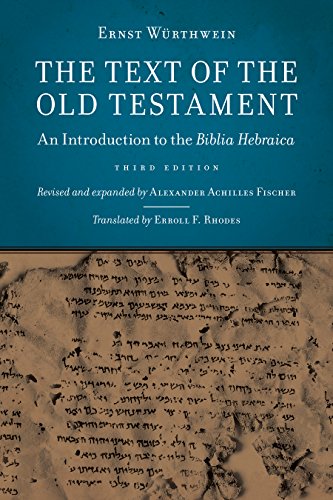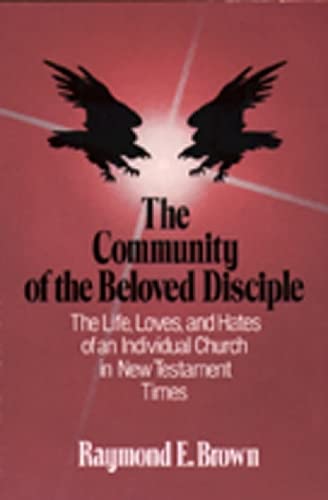Volume 6 - Issue 3
Three Current Challenges of the Occult
By Anthony StoneThis article discusses challenges of the occult in the three areas of interpretation of scripture, astrology (as a particular occult subject) and the use of power.
One way of defining the occult is to list things such as magic, spiritism, card reading, and so on. Otherwise it may be defined simply as the supernatural without God.
I A challenge in the interpretation of scripture: Are there hostile spiritual powers?
If there are no hostile spiritual powers, all psychic and spiritual experiences arise either from natural human faculties or from God. But if hostile spirits exist, the number of possible sources is three. If there are only two sources, the occult cannot be particularly dangerous, and may even be helpful spiritually.
Although the biblical writers themselves clearly believed in the existence of evil spirits, many today would demythologize, reinterpret or otherwise explain away this belief. We find disbelief in a personal devil, demon possession reduced to a synonym for illness, and so on. Even some of the more conservative may deny that Satan is active today.
We shall approach this question by looking briefly at (a) scripture, and (b) experience.
(a) Important scriptural passages. The cross is of central importance here. Jesus himself interpreted his death as due to ‘the power of darkness’ (Lk. 22:53) and said that ‘the ruler of this world’ would be cast out (Jn. 12:31; cf. 14:30; 16:11). Christ is now far above every archē (principality), exousia (authority), dynamis(power), kuriotēs (dominion) and every other name (Eph. 1:21; cf. 1 Pet. 3:22); these terms being names of orders of angels in Jewish thought.1
In Ephesians 6:12 archai and exousiai were among the ‘spiritual hosts of wickedness’, and in Colossians 2:15 Paul states that the archai and exousiai were defeated on the cross. The Colossian passage is a much discussed one. Alford2 held that 2:15 refers only to the angels who mediated the Mosiac law (and that the angels in 2:18 are holy angels). Many scholars do not take this view, especially with improved understanding to the first century world-view; they understand 2:15 to declare the defeat of hostile cosmic powers.3
Hebrews 2:14f. states that Christ’s death removes the fear of death by ‘destroying’ the devil. This verb for ‘destroy’ (katargeō) is not always as strong as in English. The thought in Hebrews is that the devil is frustrated in his work of binding people by their fear of death. The devil is still active, and we are all engaged in spiritual warfare (Eph. 2:2; 6:11–13; 1 Pet. 5:8f.). However, Christ’s victory has made certain the final destruction of Satan and his angels (the demons; evil spirits) (Mt. 25:41; Rev. 20:10).
We conclude that these matters are an essential part of what the Bible teaches.
(b) The place of experience. Mrs. Jessie Penn-Lewis4 produced a comprehensive treatment of Satanic deception and oppression of believers, based on her experiences after the Welsh revival at the beginning of the 20th century. Dr Kurt Koch’s early work5 reveals connections between Satanic activity and the occult, such as those involved in occult practices developing an aversion to Christian things, and the power of Christ giving release from the ill effects of the occult.
We must avoid the trap of arbitrarily interpreting the Bible according to our own situation, but the error would seem to be to deny the New Testament view when demonic activity is not apparent.
We may conclude that experience bears out the belief that the evil spirits described in the Bible are a reality. There are then three sources of our experience.
The next challenge concerns a particular topic in occultism: astrology.
II The challenge of astrology: What if it works?
Argument about astrology is sometimes limited to trying to prove that it cannot work. If, however (as in an instance known to the writer), a person’s opposition to astrology is merely the belief that it does not work, a successful astrologer can make such opposition collapse. In any case, this approach usually assumes (wrongly, as I shall try to show) that astrology is an attempt to trace celestial influence. Thus Galileo rejected the suggestion that the moon influences the tides, as an astrological fancy.6
If, in spite of what some dictionaries and astrologers may say, astrology is not an attempt at a science of celestial influences, the alternative is that it is divination. This distinction, vital for the preliminary question of the nature of astrology, will now be explained.
Table 1 Science and divination contrasted
| SCIENCE
|
DIVINATION
|
| 1. Studies empirical relationships
|
1. Uses non-empirical relationships (‘symbolic connections’)
|
| 2. Uses regularities
|
2. Uses chance and/or ‘intuition’
|
| 3. Rejects inadequate theories
|
3. Retains all methods
|
| 4. Theories are public
|
4. Rules are not explained
|
| 5. Undogmatic
|
5. Authoritarian
|
| 6. Success expected
|
6. Success doubtful
|
Science and divination. The main features of science (see Table 1) are (1) the study of empirical relationships by direct or indirect observation; (2) interest in regularities, especially for prediction; (3) rejection of inadequate theories.7 It follows that: (4) scientific theories are public; (5) science is undogmatic (ideally); and (6) success is expected.
An example of divination is the use of the Chinese classic, I Ching. The user mentally poses a question and then spins coins to pick out, by the combination of heads and tails, one of the book’s ‘hexagrams’ (i.e. a diagram of six parallel lines, each either broken or unbroken). Each hexagram is associated with a cryptic text which the user has to apply to his or her particular circumstances in order to answer the original question.
The characteristics of divination8 (cf. Table 1) are just the opposite of those of science: (1) there is no demonstrable empirical relation between the divinatory signs (e.g. the hexagrams) and what they are taken to signify. Instead, symbolic connections are used. (The commentary on the I Ching interprets the hexagrams in terms of qualities based on whether the lines are broken or unbroken.) (2) Chance and intuition are used, rather than regularities.
Thus (3) a diviner may call a particular method of divination inadequate if he or she is unsuccessful with it, but there is no way of obtaining a consensus that a certain method has been falsified. Hence all methods of divination coexist. (4), (5) Rules of divination are laid down without explanation and the choice of a particular method is for individual reasons. (6) Success is uncertain (though not entirely lacking).
Astrology as divination. Indian astrology includes a wider range of methods than the Western form, making it easier to see the divinatory nature of the subject.
In Indian astrology there are various ways of constructing a new horoscope for a person whose original horoscope and time of birth are irretrievably lost. Some of these methods use the number of people present when the client approaches the astrologer, the direction the client faces, or similar data.9 It is not thought that the new horoscope will be the same as the old one, only that the astrologer will be able to predict correctly from it. This is clearly a divinatory approach using multiple methods and symbolic connections based on chance.
Another interesting example concerns answering a query from a horoscope constructed for the time the query is made. One work10 uses a rough approximation to the time (based on shadow measurement) and also modifies it so that when the sun is in the same position before or after noon, and is in the same position north or south of the equator but moving northwards or southwards, four different times are used although the actual time of day is the same in all four cases. This is an attempt to give different astrological qualities to these four periods of time. The result is another set of symbolic connections.
Western and Indian astrology share some other features of this kind, including the use of additional, imaginary planets and ‘rectification’ of birth times (by astrological methods) in order to produce more appropriate predictions.
Some astrologers, however, use accurate birth times and exact positions of the planets. Does this represent a scientific enclave within astrology? The answer must be no, because the horoscope is still a set of symbols, interpreted with the help of symbolic connections and intuition. Astrologers follow different systems in many of the details of astrology, and the rules have not been subject to falsification.
Astrology falls under God’s condemnation both explicitly (e.g. Je. 10:2) and also as divination (e.g. Dt. 18:9–14).11 It follows that any use of astrology will be spiritually dangerous. It should never be ‘tried out’. However, it is possible to study many aspects of astrology from the outside, without any involvement in the predictive process itself.
Celestial influence as science. Just as the moon’s gravitational pull causing the tides is a scientific fact, many other examples of celestial influence are now being discovered by scientists.12 One author speaks of ‘a new science of cosmic influences’.13
One of the most detailed (and therefore somewhat technical) surveys of this ‘new science’ is contained in a book by Dr G. Dean,14 a scientist-cum-astrologer. Dean was interested in evaluating the objective validity of the large number of varying methods and rules used by different astrologers, as well as surveying other work on cycles, etc. He is very strict about statistical significance, and so is taking a scientific approach.
For Dean, the most important work is that of the French scholar, Michel Gauquelin15 (not an astrologer), who has found statistically significant correlations between certain personality traits and certain planetary positions at birth. (This does not give rise to any rule of prediction, since only about 20% of the people showed the effect.) Dean says that Gauquelin’s results
provide, for the first time, rigorous and objective evidence about the basic fundamentals of astrology, upon which everything else depends.16
This conclusion depends on Dean’s definition of astrology as ‘the study of correlations between living organisms (especially man) and extraterrestrial phenomena’.17 But since astrology, as traditionally pursued, has not had a scientific approach but a divinatory one, it is better not to use the term ‘astrology’ for the scientific investigation of celestial influences and correlations. We may then say, with Gauquelin, that his results have nothing to do with astrology, but only with science.
What if it works? Dean18 explains some of the ways in which astrology may come to be believed for the wrong reasons, such as gullibility; He also notes that ‘intuition’ can give correct results, even from wrong horoscopes.19
Indian astrologers often stress the need for ‘intuition’ if predictions are to be correct. What is meant is that as the astrologer considers the horoscope, the predictions to be made come into the mind. Naturally, this approach opens the astrologer to the influence of outside forces. That demonic forces are involved, at least in some cases, is illustrated by the experience of a man known to the writer. This man made correct predictions by ‘intuition’, but suffered physical, mental and spiritual oppression until he made a commitment to Christ.20
We may also note two points made by Koch, the first being the fear which may develop from taking note of astrological predictions.21 The second point is seen in the case of a pastor who had detailed predictions made from his horoscope: they began to come true, until he repented and asked God’s forgiveness and protection from demonic powers.22
Often, the precise nature and degree of the demonic element, if any, in astrological prediction is not clear. But since astrology is condemned by God, it belongs to the kingdom of darkness and will lead to harmful results of various intensities. Part of the work of deceiving spirits (1 Tim. 4:1) may be to give correct astrological (and other) predictions, or to make some of these predictions come true.
Our conclusions may be summarized as follows:
(i) Scientific studies of cosmic influences and correlations, as such, are not astrology.
(ii) There is no test of ‘astrology’ (in our divinatory sense of the word), only of individual astrologers.
(iii) Some astrologers do develop a predictive ability.
(iv) The Bible condemns the use of astrology.
The final challenge brings us to the basic matter of power.
III The challenge of power: Should we try to develop our psychic abilities?
This question arises because some in the church are saying, softly perhaps, that we should.23 We have to remember that while there seem to be some natural psychic occurrences (e.g. at the death of a distant loved one), psychic abilities also develop as a result of involvement in the occult, and may be a burden. Koch24mentions, among other things, the appearing of clairvoyance after magical charming.
It will be helpful to look at a few psychic-type events recorded in the Bible.
Samuel acted as a seer and could predict future events (1 Sa. 9:6, 19f.; 10:1–6). Elisha seemed to be clairvoyant (2 Ki. 6:8–12). Ezekiel experienced out-of-the-body travel (Ezk. 8–11).
The New Testament also records short-range prophetic predictions (Acts 11:27f.; 21:10f.) as well as healings and exorcisms (e.g. Acts 19:11f.).
The point about these examples is that they all happened by the power of God and not by occultism (e.g.Ezk. 8:1, 3; Acts 19:11). On the other hand, Satan can also produce ‘signs and wonders’, which, however, lead away from the truth (2 Thes. 2:9f.; Mt. 24:24).
It is possible for a sincere Christian to be misled into thinking that his or her occult powers are from God when they are in fact satanic. Koch25 gives a salutary example of this.
The other aspect is that the occult does provide power. It is noteworthy that Hindu astrologers generally worship the planets for success in prediction and also for protection against ill effects following from their work.
Whatever powers there are, Christ is far above them (Eph. 1:21). In the spiritual warfare the challenge to Christians is not that we should develop occult power, but that we should be channels of Christ’s power. This means being available to do whatever he wishes us to do.
1 Cf. 1 Enoch 61:10: angels of principality and angels of power; Test. Levi 3:8 (thronoi kai exousiai); 2 Enoch20:1, given as: dominions, orders, governments, … thrones, in R. H. Charles, The apocrypha and pseudepigraphia of the Old Testament, Vol. II (Oxford, 1913); but as: lordships, principalities, powers, … thrones, in W. R. Morfill and R. H. Charles, The Book of the Secrets of Enoch (Oxford, 1896); both lists being equated with the names in Colossians 1:16.
2 Henry Alford, The Greek Testament, Vol. 3 (1865).
3 See, e.g., J. B. Lightfoot, St Paul’s epistles to the Colossians and to Philemon (1875); Bishop Ellicott, St Paul’s epistles to the Philippians, the Colossians and Philemon (1888); R. Leivestad, Christ the conqueror(London, 1954), pp. 92–115; R. P. Martin, Colossians and Philemon, New Century Bible (London: Oliphants, 1974), pp. 10–15.
4 Jessie Penn-Lewis and Evan Roberts, War on the saints (abridged edn) (Poole: The Overcomer Literature Trust, Fort Washington: The Christian Literature Crusade, 1977).
5 K. E. Koch, Christian counselling and occultism (Grand Rapids: Kregel Publications, 1978), pp. 188, etc.
6 Michel Gauquelin, The cosmic clocks (Granada, 1980), p. 142.
7 By falsification: Karl R. Popper, The logic of scientific discovery10 (Hutchinson, 1980).
8 This section is concerned only with divination by external signs.
9 Varahamihira’s Brihat Jataka, ch. 26.
10 Padmaprabhu Suri’s Bhuvana Dipaka, 55.
11 The AV ‘observer of times’ was a diviner of uncertain type.
12 See Lyall Watson, Supernature (London: Hodder Paperbacks, 1974); Michael Gauquelin, Astrology and science (London: Mayflower Books, 1972); The cosmic clocks (Granada, 1980), Guy Lyon Playfair and Scott Hill, The cycles of heaven (London: Pan Books, 1979).
13 This is the title of Gauquelin, Astrology and science, Part III.
14 Geoffrey Dean, Recent advances in natal astrology/A critical review 1900–1976 (Recent Advances, Monksilver, St Boniface Road, Ventnor, Isle of Wight, PO38 1PJ, 1977).
15 Dean, op. cit., pp. 380sq.; also the works in footnote 12.
16 Dean, op. cit., p. 394.
17 Ibid., p. 1.
18 Ibid., pp. 23sq.
19 Ibid., p. 28.
20 Ch. 7 of A. P. Stone, Light on astrology (Bombay: Jyoti Paperbacks, Gospel Literature Service, 1979).
21 Op cit., p. 95.
22 K. E. Koch, Between Christ and Satan (W. Germany: Evangelization Publishers; UK: Ambassadors for Christ International, Grand Rapids: Kregel Publications, 1968), p. 17.
23 Morton T. Kelsey, The Christian and the supernatural (London, 1977); Matthies, The opening door(Augsburg).
24 Footnote 5, p. 186.
25 Ibid., p. 40.
Anthony Stone
Oxford






